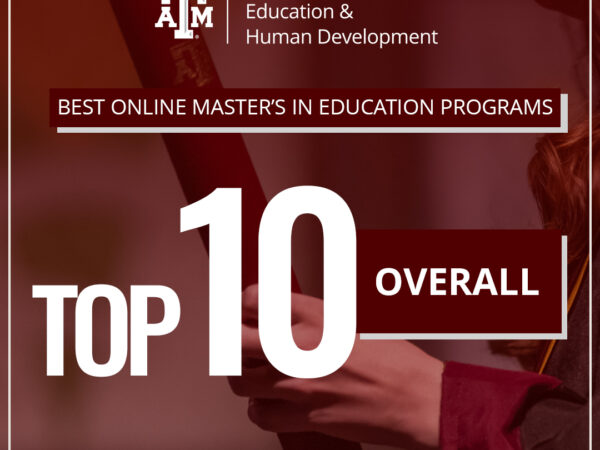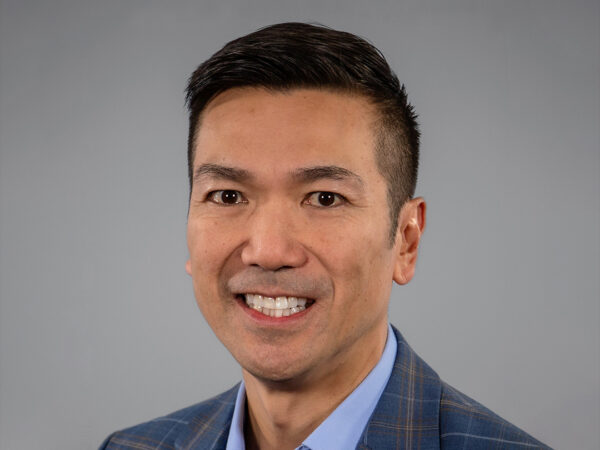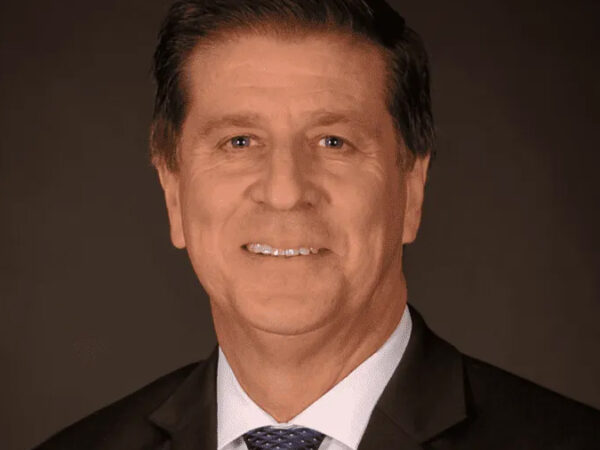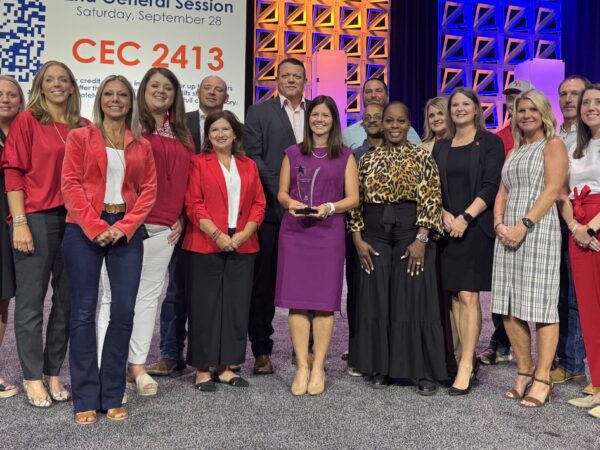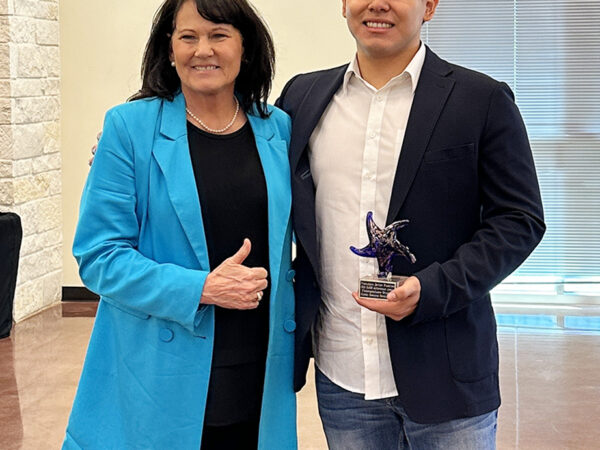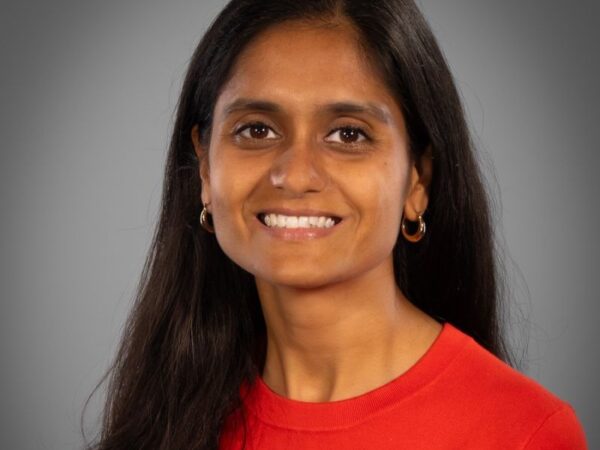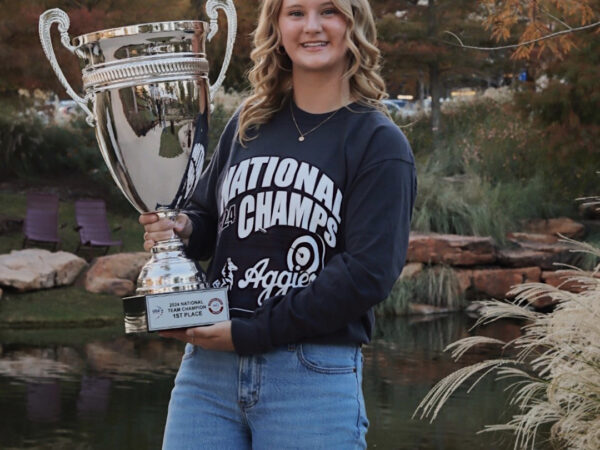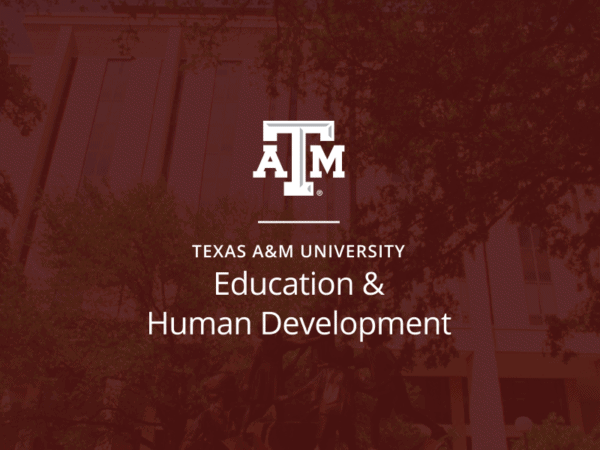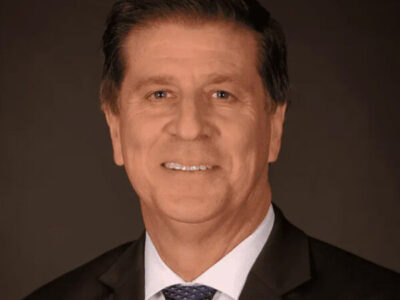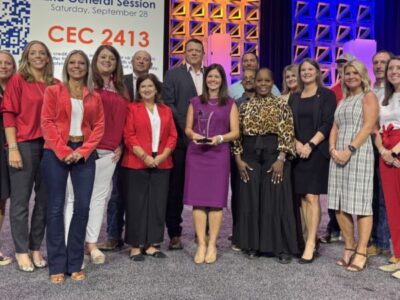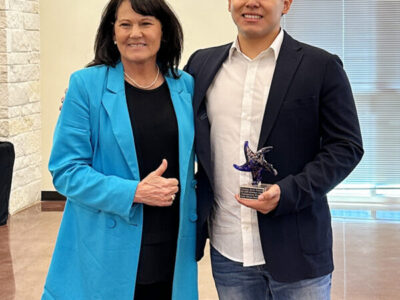A recap of the Education Leadership Research Center’s Summer Leadership Institutes
Written by Dr. Matthew J. Etchells
During the months of June and July, the Education Leadership Research Center and Center for Research & Development in Dual Language & Literacy Acquisition teams in the College of Education and Human Development delivered 125 hours of TEA recognized professional development to educators from across Texas.
Supported through the Accelerated Preparation of Leaders for Underserved Schools grant, directed by Dr. Beverly J. Irby, Dr. Rafael Lara-Alecio, Dr. Fuhui Tong, and Dr. Mario Torres, this U.S. funded professional development was coordinated by Donna Druery. Covering topics from school safety and critical dialogues to peer coaching and professional learning communities, the Summer Leadership Institutes involved over 50 invited guest speakers and engaged over 650 attendees from Texas and the U.S.
“The focus of the Summer Leadership Institute is to provide research-based strategies that help teachers and leaders to improve their instructional and leadership capacity for high-need schools,” Irby said. “This program, part of APLUS is funded by the Supporting Effective Educator Development (SEED) grant program, U.S. Department of Education, and is based on the research and development within the grant.”
The first, two-day, SLI focused on critical dialogues and action on safety and challenges in schools.
During a panel discussion Dr. Stephen D. Benigno, Texas A&M International University, said, “There should never be pockets of anonymity on your campus. When we pass a group of students, at least one of us needs to know at least the one of those students by name.”
Attended by school leaders and resource officers from across Texas, this SLI included many distinguished guest speakers such as Frank DeAngelis, who drew on his personal experience, on leadership lessons from Columbine and beyond. DeAngelis was the principal during the 1999 Columbine school mass shooting that killed 12 students, 1 teacher and injured 24.
Jonathan Harvell, assistant principal of Mahaffey Elementary School, reflected on a quote from DeAngelis. “The students don’t care how much you know until they know how much you care,” Harvell said. “As far as bringing back to my campus or my district, I feel strongly that we need to continue the conversation, looking toward solutions.”
SLI 1 included multiple panels of Texas A&M University System professors and Texas Independent School District leaders on school safety. Other speakers focused on responding versus reacting to campus violence, reaching the hard to reach students, dangers of living life online, the prevalence of peer bullying, safe spaces and emergency preparedness. Attendees also learned about updates from the 86th Texas Legislature from Texas A&M University-Commerce faculty, Dr. Kathryn Dixon and Dr. Laura Isbell, and Texas House Rep. Senfronia Thompson, who joined the institute by phone.
SLI 2: Supporting high-need campuses
The next day, the two-day SLI 2 began, attended by Aldine ISD leadership teams. This SLI focused on engaging in critical dialogue for leadership teams on high-needs campuses and campus improvement plans. This session included thought leaders such as Dr. James Lynch, Superintendent of Schools East Greenwich, New Jersey Board of Education, Dr. Henry Musoma, Director of Development, Academic Affairs, Texas A&M Foundation, Dr. Reginald Green, education consultant, Dr. Valerie Hill-Jackson, Assistant Dean of Education Preparation, and Dr. Gwendolyn Webb, associate professor in the Department of Educational Administration and Human Resource Development. SLI 2 also included a tour and dinner at the Heritage Lounge, Kyle Field.
SLI 3: Supporting diverse campuses
At the end of June, the four-day SLI 3 focused on critical dialogues for school leaders of diverse schools and was attended by school leaders from across Texas. Facilitated by Dr. Nanc Watson, Founder and President of the Center for Change and Conflict Resolution and clinical professor in EAHR, this professional development involved panel discussions on dialogue in leadership from superintendents from across Texas, skill set for critical dialogue and change by leaders at Texas A&M University, critical dialogues for improving organizational climate and inclusion from Aldine ISD leadership coaches, and critical dialogue on parent and community engagement from CRDLLA, Lead Coordinator, Dr. Cindy Guerrero, Research Specialist, Dr. Sharmila Pathikonda, and Bryan ISD, Community Outreach Office, Dr. Hugo Ibarra.
Presentations included being human from an archival perspective by Dr. Rebecca Hankins, promoting change around positive school climate by Dr. Jamila Blake, associate professor in the Department of Educational Psychology, and critical dialogues and mindfulness by Dr. Miranda Walichowski, clinical associate professor in EPSY.
SLI 3 also included tours of Kyle Field and George Bush Presidential Library and Museum, and a dinner presentation on conflict resolution at the Annenberg Presidential Conference Center by Dr. Frank Ashley, Vice Chancellor Emeritus, Texas A&M University System, Senior Associate Dean for Academic Affairs, The Bush School of Government and Public Service.
Ashley closed his talk by stating, “Conflict is inevitable; combat is optional.”
He was requested to share his hobby, ballroom dancing, at the end of his speech. Elsa Villarreal, project coordinator for APLUS: Building Instructional Capacity to Impact Diverse Learners, assisted Ashley in his demonstration of merengue.

To end his talk, Dr. Frank Ashley and Elsa Villarreal danced merengue at Annenberg Presidential Conference Center.
During the SLI Dr. Watson led attendees through many conflict management and resolution strategies and Lupita Hinojosa, Chief of School Leadership and Student Support Services in Spring ISD, reflected on her experience.
“The work that I do with my assistant superintendents as well as principals often times we tend to avoid conflict, we tend not to want to have that critical dialogue about issues that are on the table,” Hinojosa said. “While avoidance is one style, we should not make it our only style. While collaboration is one style, we want to collaborate and get input in the final decision or in that conflict that is occurring. It is not always the only way. At times, you have to make a decision. You have to take a stand. It is okay to take a stand. That was a really powerful time that we have spent with her these last three days on and off, having that discussion.”
SLI 4: Peer Coaching and Professional Learning Communities
The 2019 Summer Leadership Institutes closed out with SLI 4 on Peer Coaching and Professional Learning Communities. This two-day event was attended by school leaders from across Texas and live streamed to educators throughout the Texas A&M University System.
After an introduction from Irby and Lara-Alecio, techniques of peer coaching were introduced. Aggie STEM Co-Directors, Dr. Robert Capraro and Dr. Mary Margaret Capraro, guided attendees through their copy of the Aggie STEM and ELRC’s new book – Coaching and Mentoring: A Handbook for Leadership Success. Dinner keynote speaker, Walichowski brought day one to a close by presenting on cultivating the inner landscape of peer coaching.
The last day of the SLI 4, focused on Professional Learning Communities overview and engagement with training and simulation delivered by Irby and Dr. Janice Koch, professor emerita of science education, Hofstra University, and Dr. Cindy Guerrero, lead coordinator for Project Literacy-Infused Science Using Technology Opportunities.
“We have run SLIs for a number of years, and the feedback we have from attendees has been very positive. Over the next year, we will be offering site-based professional development to meet the needs of schools across Texas on a year-round basis”, said Druery, APLUS SLI coordinator.
For more information visit elrc.tamu.edu and crdlla.tamu.edu.
Follow @ELRCTAMU and @CRDLLATAMU on Twitter and Facebook for the latest news and events.
For media inquiries, contact our Media Relations Coordinator, Ashley Green
Fundraising
To learn more about how you can assist in fundraising, contact Amy Hurley, Director of Development ahurley@txamfoundation.com or 979-847-9455



